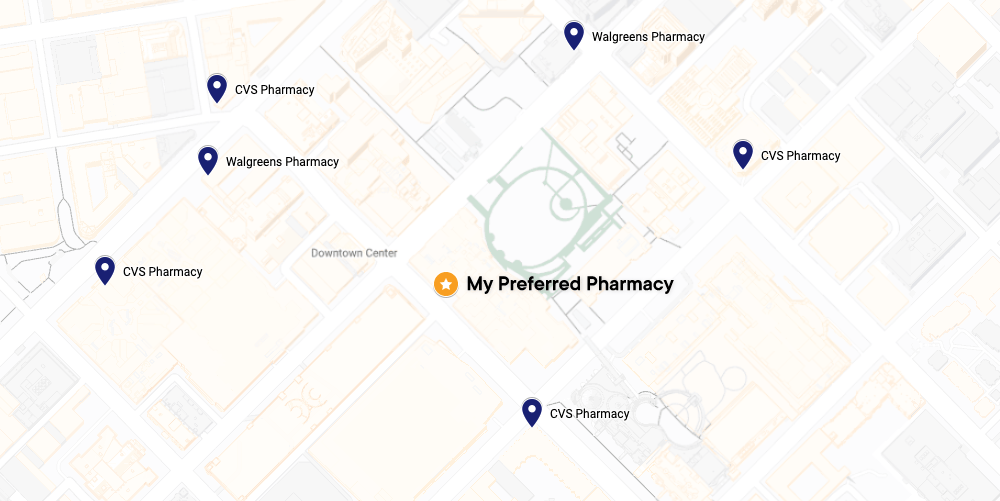
How can doctors tell if I have herpes?

Prescriptions are provided at the doctor's discretion. Learn more about our controlled substances policy and how to save up to 80% with our prescription discount card. PlushCare doctors cannot treat all cases of herpes. Our primary care physicians can conduct an initial evaluation of your symptoms but may need to refer you to a specialist or for in-person treatment. If you are experiencing life-threatening symptoms, seek emergency medical attention immediately.
Herpes simplex virus-1 (HSV-1) and herpes simplex virus-2 (HSV-2) are two common, highly contagious, and lifelong viruses in the herpes simplex virus family. HSV-1 typically leads to oral herpes, which causes cold sores or blisters around the face and mouth during outbreaks. HSV-2 most commonly causes genital herpes, which is characterized by sores and lesions around the genitals and anus.
While about 64% of people worldwide have HSV-1 and around 13% have HSV-2, many impacted people do not immediately know they have herpes.1 While the typical incubation period is between 2 and 20 days, every person’s immune system is different, and outbreaks may not occur until weeks, months, or even years later.2
If you suspect you have been exposed to oral or genital herpes, or if you believe you are experiencing an outbreak, you should book a doctor’s appointment as soon as possible to get tested. Sign up for PlushCare today to discuss tests for HSV-1 and HSV-2 via our discreet, online appointments.
What tests can I get to see if I have herpes?
If you have been exposed to herpes but are so far asymptomatic, or if you believe you are experiencing an outbreak, you should make a doctor’s appointment to get tested for HSV-1 and HSV-2.
If you have an active outbreak, your clinician will swab the lesions directly to test for the virus.4, 5 If you were exposed but do not have any sores, your doctor can still test you for herpes with a blood test. Both swab and blood tests can tell you whether you have herpes, and they can differentiate between HSV-1 or HSV-2. However, these tests cannot confirm when or from whom you got herpes.
Our top-rated medical team can talk to you about your concerns or symptoms and help you decide whether to get tested for HSV-1 and HSV-2. If they decide to order tests for you, they will send the order to a lab near you. Lab results will be sent back to PlushCare, where your online doctor will interpret and discuss treatment options with you during a subsequent appointment.
How does the swab test work?
During a swab test, a sample of fluid from open and unhealed sores or blisters is swabbed and then analyzed.4, 5 Labs can use this sample to either do a viral culture or a polymerase chain reaction (PCR) test. In viral cultures, cells taken from your sample are grown in a lab and tested for herpes. In PCR tests, clinicians look for genetic material from HSV-1 or HSV-2 in the sample.
How does the blood test work?
During a blood test, providers will take a small amount of blood from your arm. They will then look for herpes antibodies, which your immune system produces to fight off the virus if it is present in your body.4,5 HSV-1 and HSV-2 both produce different antibodies, allowing your medical team to diagnose you with one or the other.
Can the blood test tell me whether I have oral or genital herpes?
If you have not yet experienced an outbreak but believe you have been exposed to herpes, blood tests can tell you whether you have herpes simplex virus-1 or herpes simplex virus-2. While HSV-1 usually causes oral herpes, and HSV-2 most often causes genital herpes, different people react to each virus strain in different ways, so there is no guarantee that outbreaks will only occur on your mouth or face with HSV-1 or only on your genitals or rectum with HSV-2.4,5
A diagnosis of either type of HSV, however, will allow your doctor to prescribe the appropriate antiviral medication that will help you manage outbreaks if they do occur. Managing outbreaks means you can also better guard against transmitting herpes to your loved ones.
Is there a cure for herpes?
There currently exists no cure for herpes, meaning there is no medication that can completely eliminate the virus from your body. There is also not a vaccine available to protect people from HSV-1 and HSV-2.2 However, there are prescription antiviral medications that can shorten and reduce the severity of outbreaks; these include acyclovir, famciclovir, and valacyclovir.
At PlushCare, our board-certified doctors are available day and night, seven days a week for online appointments to discuss herpes testing and treatment. If your provider decides medication is right for you, they can send a prescription to a pharmacy near you.
3 simple steps to discuss Herpes

Book a herpes treatment appointment.
Book a same day appointment from anywhere.

Talk to your clinician regarding your herpes symptoms.
Visit with a doctor on your smartphone or computer.

Pick up prescription for herpes treatment.
How pricing works
30 days of free membership
- Same-day appointments 7 days a week
- Unlimited messages with your Care Team
- Prescription discount card to save up to 80%
- Exclusive discounts on lab tests
- Free memberships for your family
- Cancel anytime
Paying with insurance
Membership
$19.99 /month
First month free
Visits
Copay
Visit price with insurance
Often the same as an office visit. Most patients with in-network insurance pay $30 or less!
We accept these insurance plans and many more:



Paying without insurance
Membership
$19.99 /month
First month free
Visits
$129
Visit price without insurance
Other herpes resources:
Sources:
PlushCare is dedicated to providing you with accurate and trustworthy health information.
- World Health Organization (WHO). Herpes simplex virus. Accessed on October 16, 2024, at https://www.who.int/news-room/fact-sheets/detail/herpes-simplex-virus.
- Cleveland Clinic. Herpes simplex virus (HSV). Accessed on October 16, 2024, at https://my.clevelandclinic.org/health/diseases/22855-herpes-simplex.
- U.S. Centers for Disease Control and Prevention. About genital herpes. Accessed on October 16, 2024, at https://www.cdc.gov/herpes/about/index.html.
- MedlinePlus. Herpes (HSV) test. Accessed on October 17, 2024, at https://medlineplus.gov/lab-tests/herpes-hsv-test/.
- American Sexual Health Association. Diagnosing herpes. Accessed on October 17, 2024, at https://www.ashasexualhealth.org/herpes-testing/.
PlushCare content is reviewed by MDs, PhDs, NPs, nutritionists, and other healthcare professionals. Learn more about our editorial standards and meet the medical team. The PlushCare site or any linked materials are not intended and should not be construed as medical advice, nor is the information a substitute for professional medical expertise or treatment.